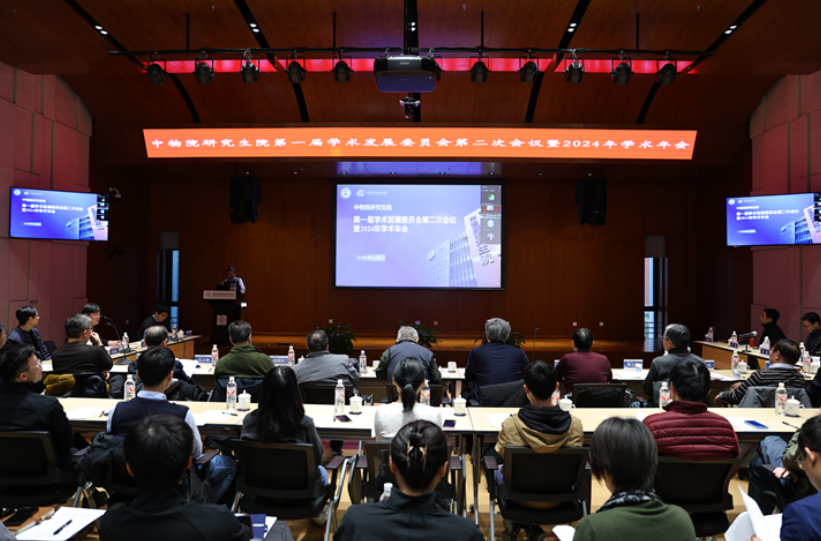
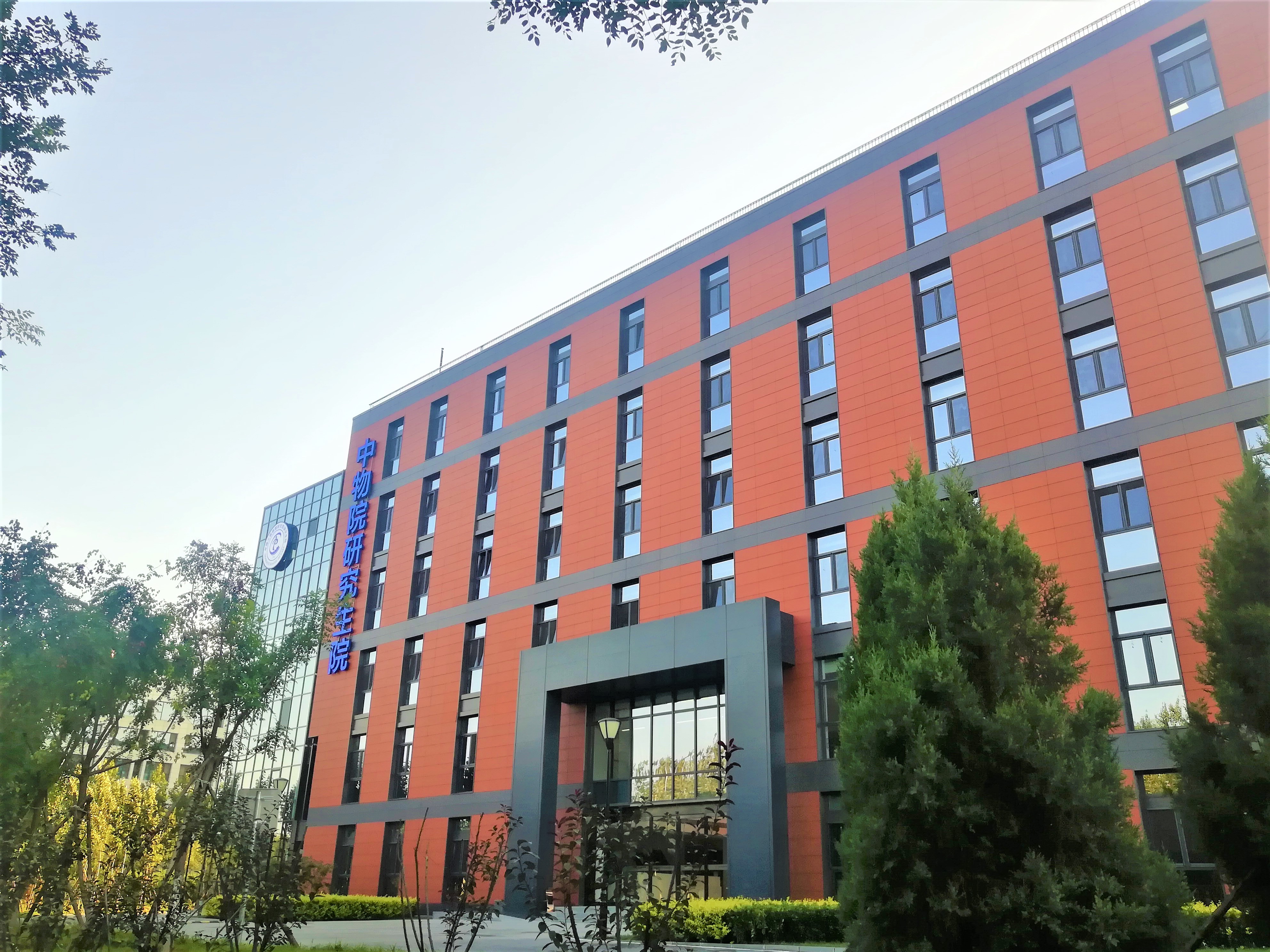
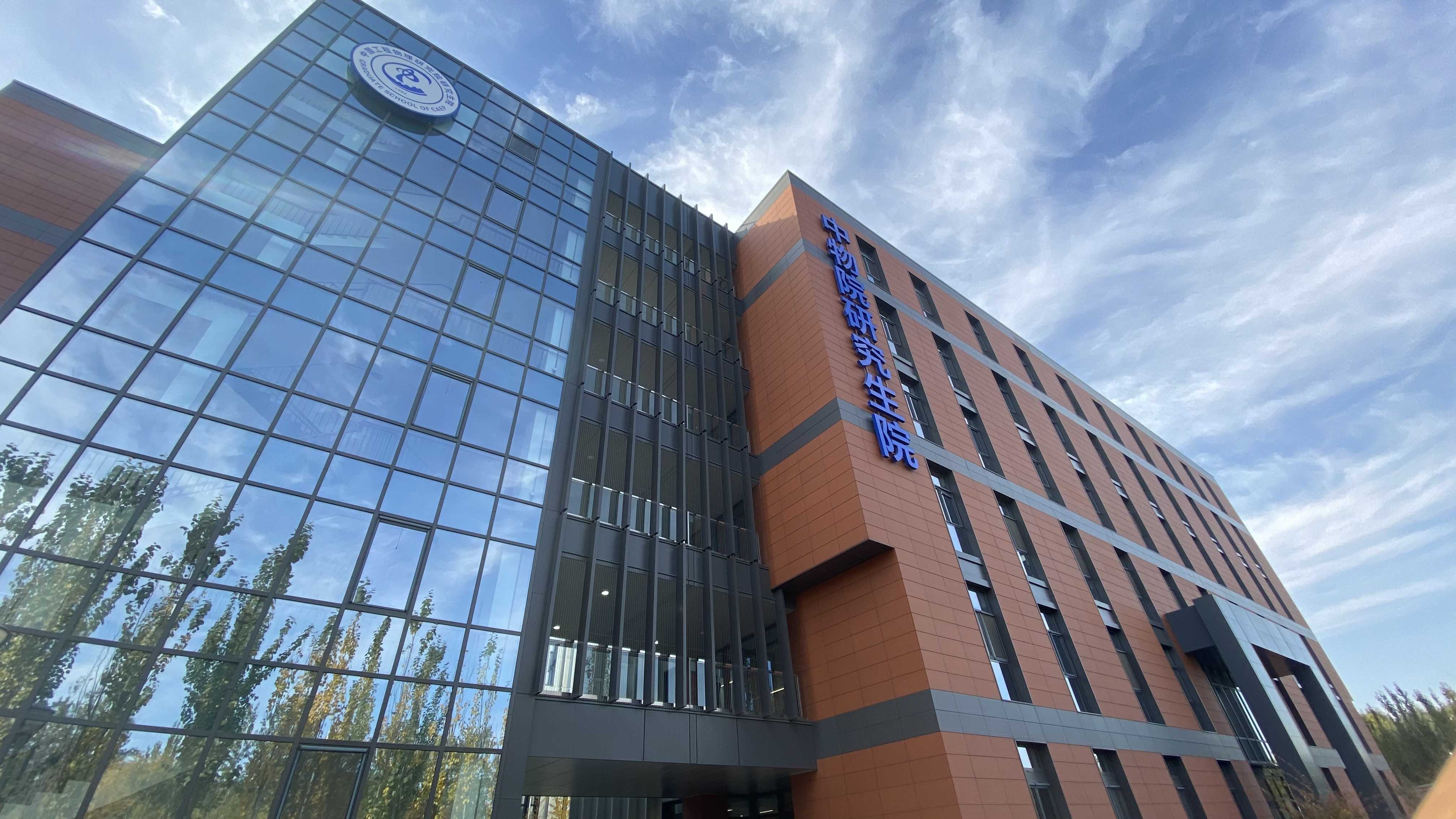
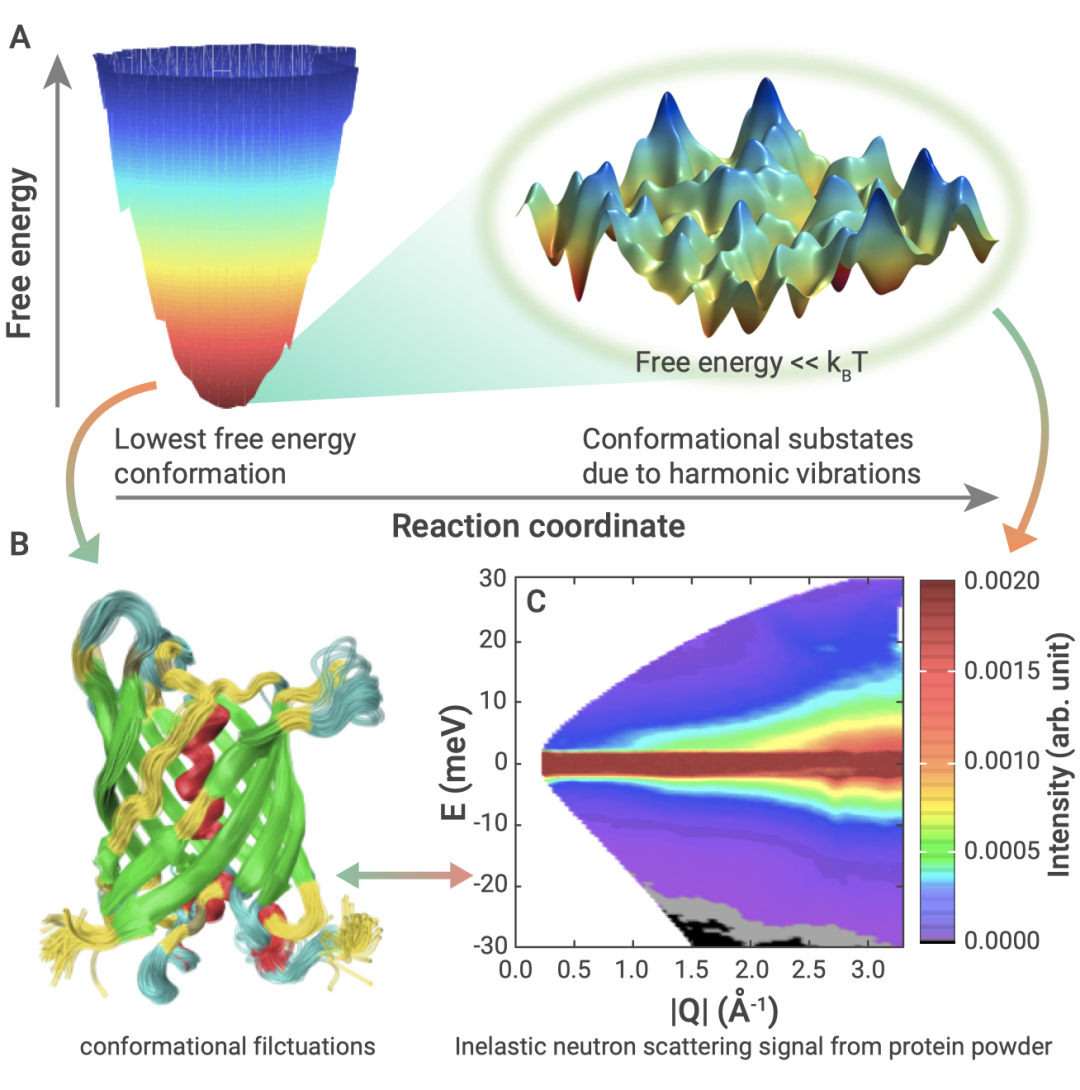

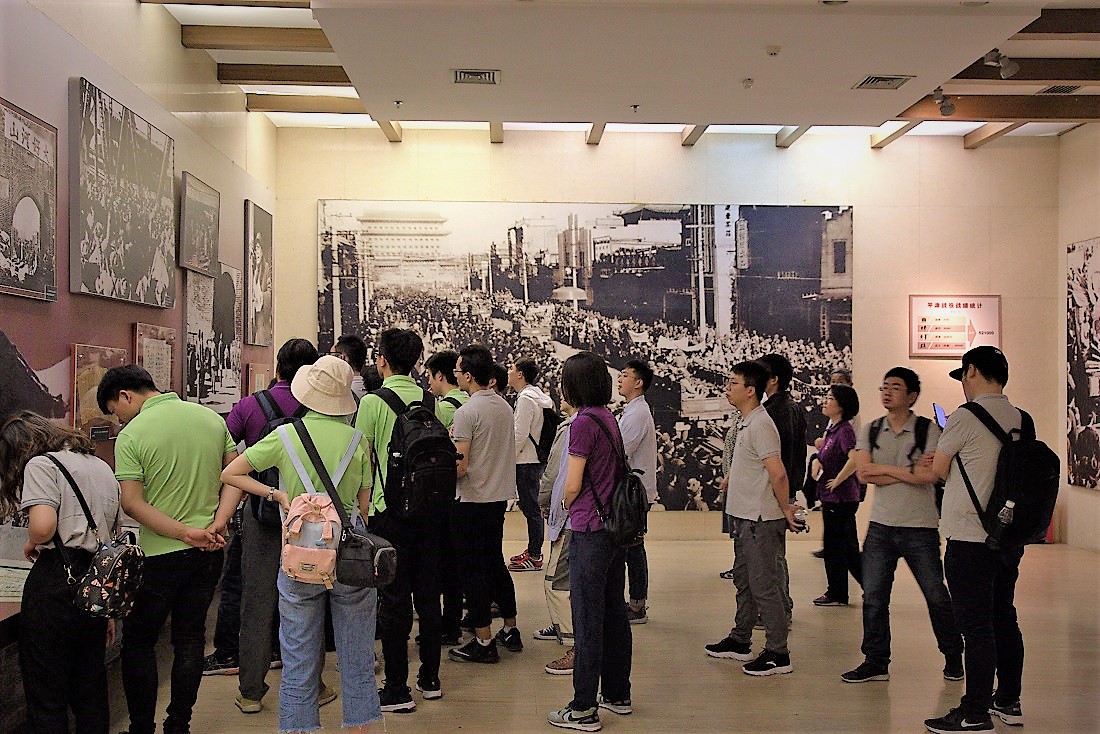









From January 13 to 14, 2025, the Second Meeting of the First Academic Development Committee and the 2024 Academic Annual Conference of the Graduate School of the China Academy of Engineering Physics (CAEP) were successfully held at the Beijing campus of the Graduate School. The meeting was attended by Changpu Sun, Director of the Academic Development Committee of the Graduate School; Minxing Luo from the Beijing Institute of Computational Science; Yuanning Gao from Peking University; Qi Ouyang from Zhejiang University; Zhengguo Zhao from the University of Science and Technology of China; Furong Xu from Peking University; Xiaosong Chen from Beijing Normal University; Hong Zhao from Xiamen University; Li You from Tsinghua University; Gang Su from the University of Chinese Academy of Sciences; Chuanxiang Tang from Tsinghua University; and Research Fellows Xiaolin Wang and Shaoping Zhu from CAEP. Additionally, Research Fellows Libin Fu, Jianmin Yuan, Jie Liu, Ying Li, Xu Wang, Xuefei Guan, and Hui Dong from the Graduate School, along with relevant researchers and administrative staff, attended the meeting, which was chaired by Secretary Jialiang Ni.
Changpu Sun delivered the opening address, briefly reviewing the achievements of the Graduate School over the past two years in promoting academic democracy, enhancing the academic environment, and establishing collaborative innovation platforms. He emphasized that the Academic Development Committee will provide crucial intellectual support and decision-making consultation for the future growth of the Graduate School. He encouraged all committee members to leverage their expertise to further promote the synergy between scientific research and education, advancing the Graduate School toward new heights.
Libin Fu, Deputy Dean (Acting Head of Administration) of the Graduate School, provided a comprehensive report on the school’s strategic positioning, its mission in the new era, recent progress in talent development, and new achievements in scientific and educational collaboration. He stated that the Graduate School will continue to strengthen discipline development, enhance fundamental research, and cultivate young talents with strong scientific literacy. The goal is to create a fertile ground for talent development and nurture high-level research teams with international perspectives and innovative capabilities.
To further strengthen research integrity and foster a healthy academic environment, the meeting resolved to establish the "Academic Ethics Supervision Committee" within the Graduate School, and appointment letters were issued to its members.
The committee members highly recognized the Graduate School’s progress in discipline development, scientific research innovation, and talent cultivation over the past two years. They acknowledged the school’s unique advantages and potential in promoting the deep integration of research and education and enhancing the academic environment. Additionally, focusing on the school’s future development priorities, the members put forward forward-looking and constructive recommendations in three key areas:
1. Strengthening collaboration with universities – The committee suggested that the Graduate School should deepen its cooperation with universities, leveraging its role as a bridge between CAEP and academic institutions. This would not only help attract high-caliber students from universities but also promote collaborative research in relevant fields, achieving mutual benefits.
2. Enhancing curriculum integration – The committee recommended capitalizing on CAEP’s strengths in fundamental research within the national innovation system, ensuring seamless integration between fundamental and specialized courses, and broadening the research scope for both faculty and students.
3. Optimizing recruitment and training strategies – By adopting a differentiated approach to admissions and training, the Graduate School can improve the overall quality of graduate education and enhance the precision of talent cultivation.
The subsequent Academic Annual Conference was chaired by Research Fellows Libin Fu, Jie Liu, and Xu Wang. Twelve researchers, including Hui Dong, Xuefei Guan, Yu Chen, Ben Xu, Ying Li, Xu Wang, Hao Zhang, Bingnan Lü, Xiaosi Xu, Yuqin Chen, Liujun Xu, and Xiaoqian Yu, presented their latest research findings and developments. The conference featured lively discussions and a strong academic atmosphere.
In conclusion, the participating experts encouraged young researchers to reflect deeply on selecting research topics of the highest value and transforming them into impactful research directions. They emphasized aligning individual research interests with CAEP’s strategic mission to nurture interdisciplinary, innovative talents who can meet national strategic needs.
The Graduate School’s Academic Annual Conference not only provides a platform for researchers to showcase their achievements and exchange progress but also serves as a guiding force for the school’s dual-driven approach to scientific research and education in the new era. Looking ahead, the Graduate School will continue to leverage its platform, align with national strategic demands, uphold CAEP’s core values, and organize high-level academic exchanges driven by demand, interdisciplinary frontiers, and intellectual depth, injecting new momentum into the school’s progress.
Submitted by: Research Planning Office
